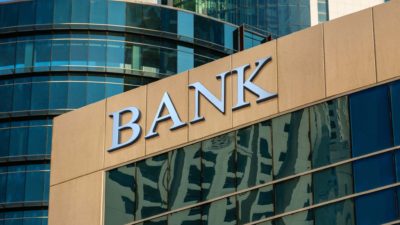Last week National Australia Bank Ltd (ASX: NAB) finally gave in to customer demand and followed the lead of Australia and New Zealand Banking Group (ASX: ANZ) and Commonwealth Bank of Australia (ASX: CBA) by offering its customers the ability to use Apple Pay.
Apple Pay, which was launched by Apple in 2014, provides consumers with an easy, secure, and private way to pay for items using their iPhone, Apple Watch, iPad, or Mac.
NAB's launch means Westpac Banking Corp (ASX: WBC) is now the only big four bank not offering the service to its customers.
This may be due to concerns over the negative impact on revenue that digital wallets are expected to have in the future.
According to Morgan Stanley, courtesy of the AFR, its analysts estimate that smartphone digital wallets could put upwards of $22 billion of revenue across the major Australian banks at risk.
The broker believes that customers could favour digital wallets provided by the likes of Google Pay, Apple Pay, Samsung Pay and PayPal as they allow numerous cards and accounts from different banks or credit card providers to be linked. Whereas the digital wallet from CBA, for example, only allows the bank's products to be used.
Where does the $22 billion come from?
Morgan Stanley is quick to point out that direct revenue from providing payments is far less than the $22 billion figure.
Its analysts came to that figure after looking into how a banks' payments capability influences decisions relating to other products. This includes transaction accounts that give major banks an opportunity to cross-sell customers more profitable products such as mortgages.
Morgan Stanley's banking analyst, Richard Wiles, said: "We think increasingly customers are likely to base their decision on the features in the app, and a lot of those features are payments-related. The capacity around payments drives decisions on which transaction account and which bank you choose as your main financial institution."
In light of this, it is no surprise to learn that CBA announced earlier this week that it would invest $5 billion in technology over the next five years.







